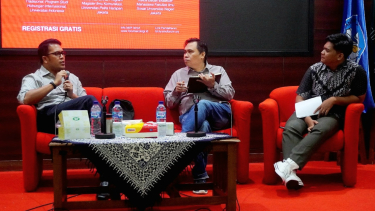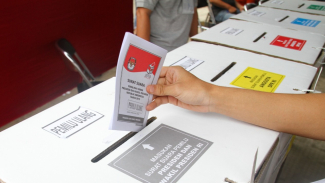Cyber Crime Can Threaten Southeast Asia as Digital Technology Advances
- Kaspersky
China – Digital technology in the People's Republic of China (PRC) is increasingly advancing through cyber operations and data breaches targeting Western countries.
China's engagement in such cyber warfare is seen as a response to Western penetration of systems within China.
According to Ali Abdullah Wibisono, a lecturer in International Relations at the University of Indonesia, this information was conveyed by Edward Snowden in 2023.
"Due to the penetration by Western countries, it creates a perception of threat within the Chinese government towards the United States," Wibisono said during a discussion titled "China and Cyber Security in Southeast Asia: Opportunities and Challenges for Indonesia" on Monday (April 22).
The discussion was organized by the Executive Board of the Faculty of Social Sciences, Jakarta State University, and the Indonesian Sinology Forum (FSI).
Furthermore, Wibisono suggested that Southeast Asia countries, including Indonesia, must respond wisely to China's technology advances.
Forum Sinologi Indonesia
- Arianti Widya
"Although the majority of China's cyber attacks target Western countries, China has previously conducted cyber penetrations against member countries of the Association of Southeast Asia Nations (ASEAN), especially during meetings regarding the South China Sea (SCS)," Wibisono explained.
However, he revealed that China would respect the rules set by the authorities of countries, including Indonesia.
"China may attempt to penetrate Indonesia, but if our authorities express their objections firmly, China is likely to respect and cease such attempts," he stated.
Therefore, Wibisono urged authorities to take a firm stance against all cyber threats, whether from China or other countries.
"Indonesia cannot rely on global cyber norms that do not explicitly prohibit cyber attacks by one country against another. Prevention and post-cyber attack recovery are the responsibilities of each country," Wibisono remarked.
In the same occasion, FSI Chairman Johanes Herlijanto said that Indonesia have to always be aware of the digital technology development in China.
According to Herlijanto, this technology development is related to China's commitment to developing what President Xi Jinping refers to as "New Quality Productive Forces."
Referring to a scholar's statement in China, he explained that "New Quality Productive Forces" refer to advanced productivity driven by revolutionary technological breakthroughs, innovative allocation of productive factors, and deep industrial enhancement and transformation.
"This term underlies Prime Minister Li Qiang's statement in March 2024 that China will strive to enhance self-reliance in science and technology," Herlijanto said.
Furthermore, he predicts that the above commitment will drive China to enhance its technology capabilities, including information technology.
On the other hand, China is also interested in participating in the development of digital infrastructure in other countries, including Indonesia, through a platform known as the "digital silk road."
This is both a source of opportunity and a threat to Indonesia.
"Chinese-origin social media platforms have been suspected of data collection, both in Western countries and in Indonesia. Likewise, Chinese hackers have been suspected of conducting cyber attacks not only on targets in Western countries but also in Southeast Asia," he concluded.
































